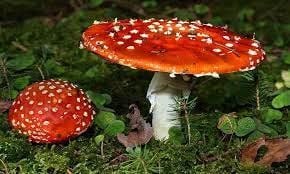This is an automatically translated article.
Post by Master, Doctor Mai Vien Phuong - Gastroenterologist - Department of Medical Examination & Internal Medicine - Vinmec Central Park International General Hospital.
Herbal medicine is said to be the oldest form of health care. Plants contain a multitude of secondary metabolites or phytochemicals, which may have a role in the treatment and prevention of various digestive disorders. However, some herbal toxicity can harm the liver and kidneys...
1. The first herbs used by humans
Medicinal plants, including various green plants as well as fungi, are believed to be the first medicinal agents known to man. The use of herbs to cure various human and animal diseases is well documented. From Paleolithic cave dwellers to medieval healing monasteries and from Renaissance alchemists like Paracelsus to the modern "technological age," medicinal plants have continued to Traditional medicine is an important part of therapeutic therapies applied to both human as well as veterinary medicine.
The application of so many species used in herbal treatments is an inconvenience. Famous and well-versed by the Hakim (physicians) of Arabic medicine as well as the Aztec and Mayan healers of ancient Mesoamerica, herbal medicine is part of a highly codified medical practice. globally. Such systems include (but are not limited to) Ayurveda, Siddha and Unani-Tibb from India, traditional Chinese herbology, and Native American herbal healing (hereinafter shown in its entirety. continental America), just to name a few.
2. Plants Used in Traditional Mexican Medicine to Treat Digestive Problems Throughout the developing world, the so-called “third world” countries, various gastrointestinal diseases continues to be one of the most challenging health problems. This is the case with the various indigenous peoples of Mexico.
Many of these peoples have a great deal of indigenous knowledge about using a variety of plants to treat diseases. According to the indigenous view of the medicinal properties of herbs, certain plants were used to treat various ailments due to their distinctive taste or aroma. Healing herbs with astringent properties are used specifically to treat diarrhea and dysentery, while bitter and aromatic herbs are used to treat pain and spasms of the gastrointestinal tract. .

3. Some toxicity of herbs
Practitioners of modern phytotherapy are well aware that the popular saying, “If it is natural, it must be safe” is not a factual view. Many of the most toxic substances known to man (from carcinogenic aflatoxin to bacterial botulism toxin) are natural substances. On the other hand, this does not mean that all herbal or mushroom products are dangerous.
Of particular concern, however, is the wide variation in quality control between different foreign and domestic companies marketing these “natural supplements” as OTC products. Since most of these products are classified in the United States as nutritional supplements rather than drugs, they are not required to be subject to direct FDA supervision.
3.1. Hepatotoxicity is a concern for certain herbs Several herbs used in traditional medicine to treat various ailments are known to be harmful to the liver, especially if taken internally. in a long time. A few examples include the Creosote bush, the so-called "Chaparral" (Larrea tridentata -Zygophyllacaeae). The leaves and twigs of this xerophytic shrub are used as a tea or medicine to treat a multitude of ailments, from venereal diseases to kidney and gastrointestinal diseases. The pills tend to be more concentrated and therefore have a higher risk of toxicity. Bellflower tea (Symphytum officinale-Boraginaceae) as well as Colt's foot teas (Tussilago farfara-Asteraceae) are also liver-damaging herbal toxicity due to their pyrrolizidine alkaloid content. Also, there are some cases of kava kava (Piper methysticum- Piperaceae) liver toxicity, especially if combined with certain medications (herb and drug interactions) or alcoholic beverages.
3.2. Medicines and Poisonous Mushrooms The use of medicinal mushrooms in traditional medicine is very popular, especially in traditional oriental medicine. They are now available in health food stores throughout the United States. Many types of higher fungi ("mushrooms") are used to treat various diseases, including some types of cancer. They contain complex polysaccharides that act as immune modulators and may be useful as cytotoxic agents against several cancer cell lines.
On the other hand, toxic mushroom poisoning is often random and occurs through careless handling and misperception due to consumption of wild mushrooms. Some herbs have cyclopeptide toxicity that is very harmful to the liver and kidneys, sometimes leading to death.
Interestingly, a natural compound called silymarin, (derived from a medicinal plant called milk thistle), is used by doctors in Germany as an antidote to mushroom poisoning, provided that it is administered intravenously within 24 hours of ingestion.

3.3. It is important to assess the possibility of an herb-drug interaction. Every day thousands of medicinal plants and fungi are used by patients to treat a variety of ailments, from infant colic to stomach cancer. Scientific herbal medicine or phytotherapy is very popularly practiced in many regions, especially Western Europe, not only by herbalists but also by physicians.
Unfortunately, many of the plants used by indigenous traditional medicine in many developing countries have not been studied in depth. However, experts have reviewed what gastroenterologists should consider including in their exercise regimens to enrich and diversify their treatments. A better knowledge of commonly used medicinal plants and their active ingredients will help physicians communicate more effectively with patients who may be taking some of these medications without formal notification to their physician. surname. In addition, it is important to evaluate the possibility of herb-drug interactions. Overall, we can say that using some of the herbal preparations for digestive problems available on the market today will have minimal or no unexpected toxic effects, with the exception of allergic reactions. characteristics are rare or their use is prohibited during pregnancy.
Although there is currently no formal FDA approval process, when used with caution, a wide variety of medicinal plants and fungi can certainly add to the therapeutic repertoire of Western physicians .
Please dial HOTLINE for more information or register for an appointment HERE. Download MyVinmec app to make appointments faster and to manage your bookings easily.
References:Armando Enrique González-Stuart et al. Medicinal Plants for Digestive Disorders What Gastroenterologist Needs to Know. Gastrointestinal motility and functional bowel disorders, series
11. September 2015 • Volume XXXIX, Issue 9 Bone K, Mills S. Phytotherapy 2nd ed. London: Elsevier; 2012. Wynn S, Bougere, B. Veterinary Herbal Medicine: New York; Elsevier; 2007. Micozzi M. Celestial Healing. San Francisco, CA: Singing Dragon; 2013. Micozzi M. Vital Healing. San Francisco, CA: Singing Dragon; two thousand and thirteen.














